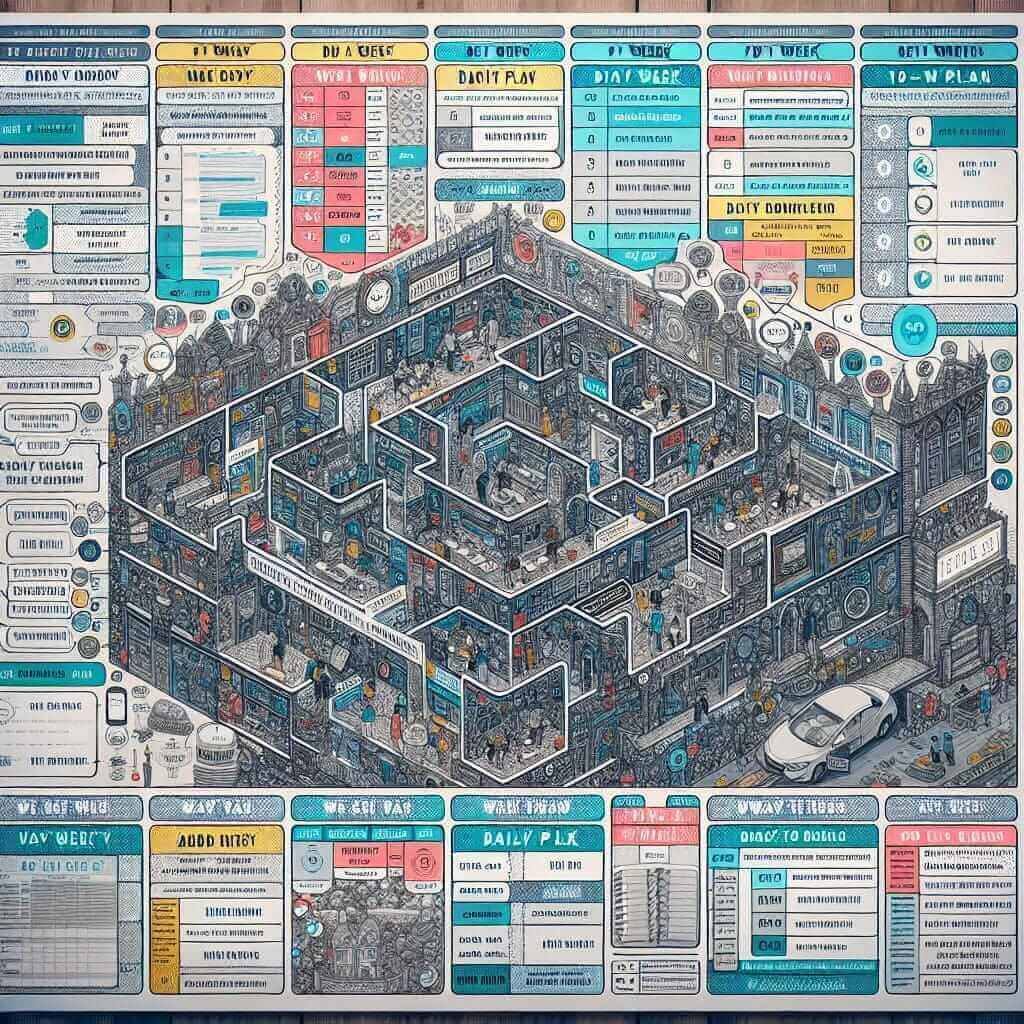Preparing for the IELTS exam can seem daunting, especially with a limited time frame of six weeks. However, with the right strategy and disciplined effort, it is entirely possible to achieve a good score. This article will provide a comprehensive guide on how to prepare for the IELTS in six weeks, including essential tips, resources, and common pitfalls to avoid.
Understanding the IELTS Exam
The International English Language Testing System (IELTS) is designed to assess the language ability of candidates who need to study or work where English is the language of communication. The test is divided into four parts: Listening, Reading, Writing, and Speaking. Each part requires different skills and strategies.
Listening Component
- Duration: 30 minutes
- Number of sections: 4
- Question types: Multiple choice, matching, plan/map/diagram labelling, form/note/table/flow-chart/summary completion, sentence completion
Reading Component
- Duration: 60 minutes
- Number of sections: 3 (40 questions)
- Question types: Multiple choice, identifying information, identifying a writer’s views/claims, matching information/headings/features/sentence endings, sentence/summary/note/table/flow-chart completion, diagram label completion, short-answer questions
Writing Component
- Duration: 60 minutes
- Number of tasks: 2 (Task 1: report writing for Academic, letter writing for General Training; Task 2: essay writing for both)
- Word count: Task 1 – minimum of 150 words, Task 2 – minimum of 250 words
Speaking Component
- Duration: 11-14 minutes
- Number of parts: 3 (introduction and interview, long turn, two-way discussion)
Week 1-2: Building Foundation
Listening Skills
- Practice with authentic listening materials: Use platforms like TED Talks, BBC Radio, or IELTS practice recordings. For instance, listen to a TED Talk on a familiar topic and take notes.
- Strategy: Focus on identifying the main ideas and details. Practice predicting information before listening, and check your answers afterwards.
Reading Skills
- Diversify your reading materials: Engage with academic articles, newspapers, and reports. Websites like The Guardian and Scientific American are good resources.
- Strategy: Practice skimming for general understanding and scanning for specific details.
Writing Skills
- Task 1 (Report/Letter Writing): Familiarize yourself with different graphs, charts, and letter formats. Practice describing a pie chart or writing a formal letter.
- Task 2 (Essay Writing): Work on structuring your essay with a clear introduction, body paragraphs, and conclusion. Write essays on common IELTS topics such as “The effects of globalization” or “The importance of education.”
Speaking Skills
- Practice conversational English: Engage in discussions with a friend or use language exchange apps like Tandem.
- Strategy: Work on giving structured, detailed, and coherent responses. Practice common topics like work, study, hobbies, etc.
Week 3-4: Intensive Practice
Listening Enhancement
- Simulate real test conditions: Take full-length practice tests under timed conditions from sources like IELTS Cambridge Practice Tests.
- Analyze: Review incorrect answers to understand the mistakes and revise those topics.
Reading Proficiency
- Timed reading practice: Aim to complete reading sections within the designated 60 minutes.
- Strategy: Focus on sections where you lost points previously and practice similar passages.
Writing Development
- Task 1: Practice at least 2-3 different types of reports or letters weekly.
- Task 2: Write and review 2-3 essays per week. Focus on argument development and use linking words to connect ideas.
Speaking Confidence
- Mock tests: Conduct mock speaking tests with a tutor or study partner. Record and listen to your responses.
- Improvement: Identify areas of weakness (e.g., pronunciation, grammar mistakes) and work specifically on those.
Week 5-6: Final Preparations
Listening Mastery
- Daily practice: Engage in shorter listening exercises daily and revise challenging sections.
- Strategy: Sharpen skills to identify synonyms and paraphrasing.
Reading Comprehension
- Examine key areas: Focus on difficult question types, such as True/False/Not Given or Matching Headings.
- Strategy: Practice under timed conditions until you feel confident in managing the time effectively.
Writing Refinement
- Task 1 and Task 2: Refine your essays with feedback from a teacher or use online writing correction services.
- Strategy: Ensure clarity, coherence, and conciseness in your writing.
Speaking Fluency
- Daily practice: Engage in speaking topics daily. Use online resources to simulate actual exam questions.
- Mock interviews: Conduct full-length speaking tests focusing on fluency and coherence.

Common Pitfalls and How to Avoid Them
Overlooking Basic Grammar and Vocabulary
- Solution: Review basic grammar rules and enhance your vocabulary with word lists or apps like Anki.
Ignoring Time Management
- Solution: Practice every section under exam conditions to get accustomed to the time constraints.
Not Reviewing Mistakes
- Solution: Analyze every incorrect answer and understand why you made that mistake.
Tips for Effective Practice
- Consistency: Study every day, even if it’s just for an hour.
- Variety: Use a mix of materials: books, online resources, and native speakers.
- Feedback: Seek feedback from teachers, peers, or online platforms.
Conclusion
Preparing for the IELTS in six weeks is challenging but achievable with a well-structured plan. Focus on understanding the test format, building foundational skills, intensive practice, and continuous improvement. Always target your weak areas and measure your progress. Good luck, and stay motivated!
If you have any questions or would like to share your own preparation tips, please leave a comment below. For more insightful articles and resources, explore our website. Your success is our priority!